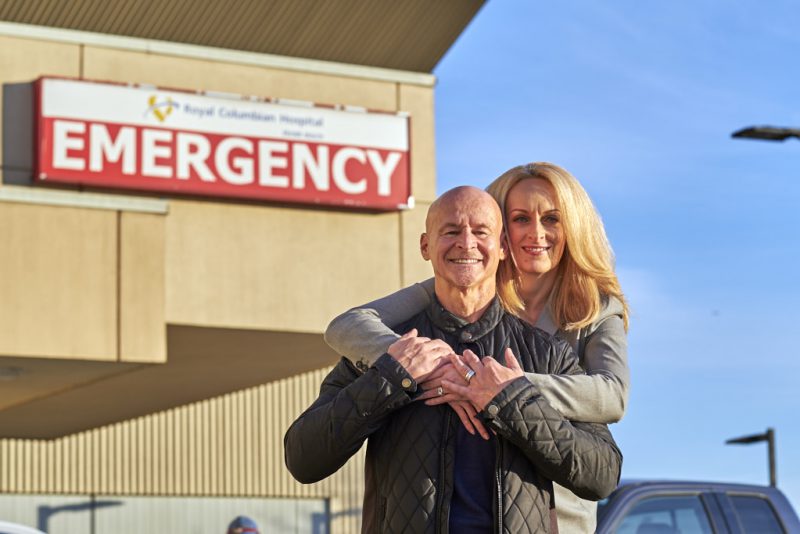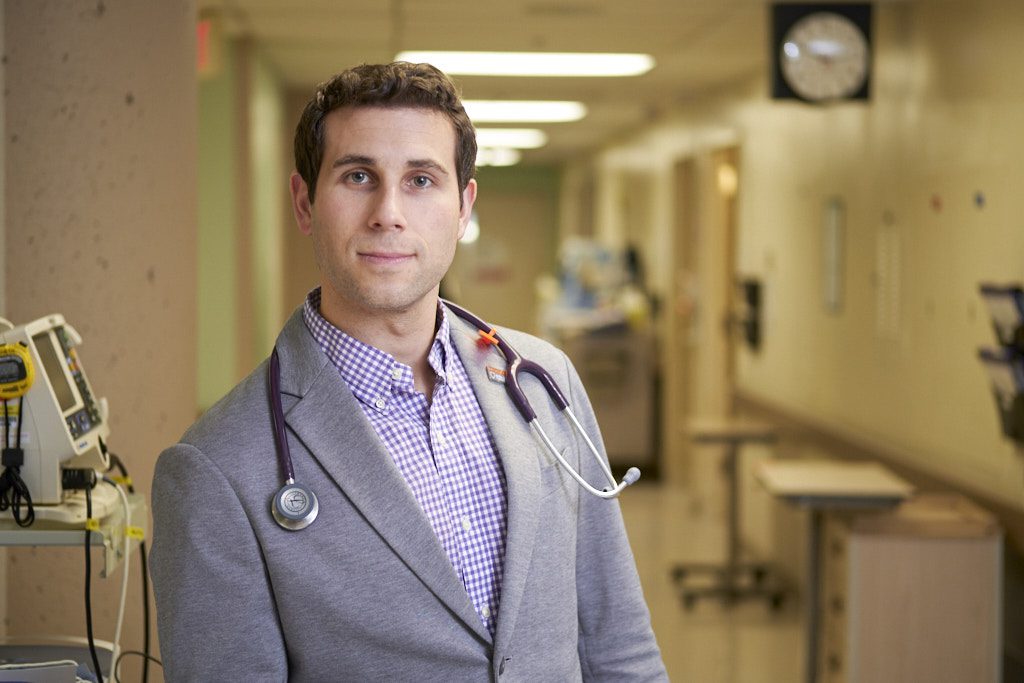
“They determined there had been a blood clot in my right carotid artery, and three shards had broken off. I had three strokes,” Trevor recalls. “Luckily it didn’t create too much damage for me.”
Royal Columbian plays an integral role in stroke care in our region. It is the cornerstone of a 24/7 Acute Stroke Team designed for centralized, comprehensive support for stroke patients.
Neurologist Dr. Gregory Walker says getting to a hospital like Royal Columbian quickly is important.
“There are some time-based treatments,” he explains. “But also there’s good evidence that shows even just getting to a stroke centre and getting appropriate blood pressure management and fluids and a proper neurologic assessment can prevent larger strokes from happening and also help recovery happen much faster.”
Neurologist Dr. Gregory Walker.
Treatments at Royal Columbian can include blood thinners, clot-busting drugs or even thrombectomy, where a blood clot is physically removed from a blood vessel during a minimally-invasive procedure that is provided at only two other hospitals in the province.
For Trevor, the plan was to break down the blood clot with medication and the body’s own natural anti-clotting system. In the meantime, Dr. Walker ran some tests to identify the cause.
“Once we find the exact cause of the stroke, then we can tailor treatment, which gives people the most protection to prevent a risk of this happening again,” he says.
Twelve years earlier, Trevor had been treated with radiation for throat cancer. Dr. Walker believes that lifesaving treatment is behind the development of Trevor’s blood clot.
Trevor stayed in the hospital for a week before he returned home. Six months later, he still feels a slight numbness in his left arm.
“I’m fine with that if that’s the worst that’s going to happen to me right now,” he adds.
He’s also grateful he didn’t put off a trip to the ER.
“I think better say something than nothing, or be a typical guy who thinks ‘I’m tough, it’s going to go away.’ I’ve seen way too many horror stories,” he says.

